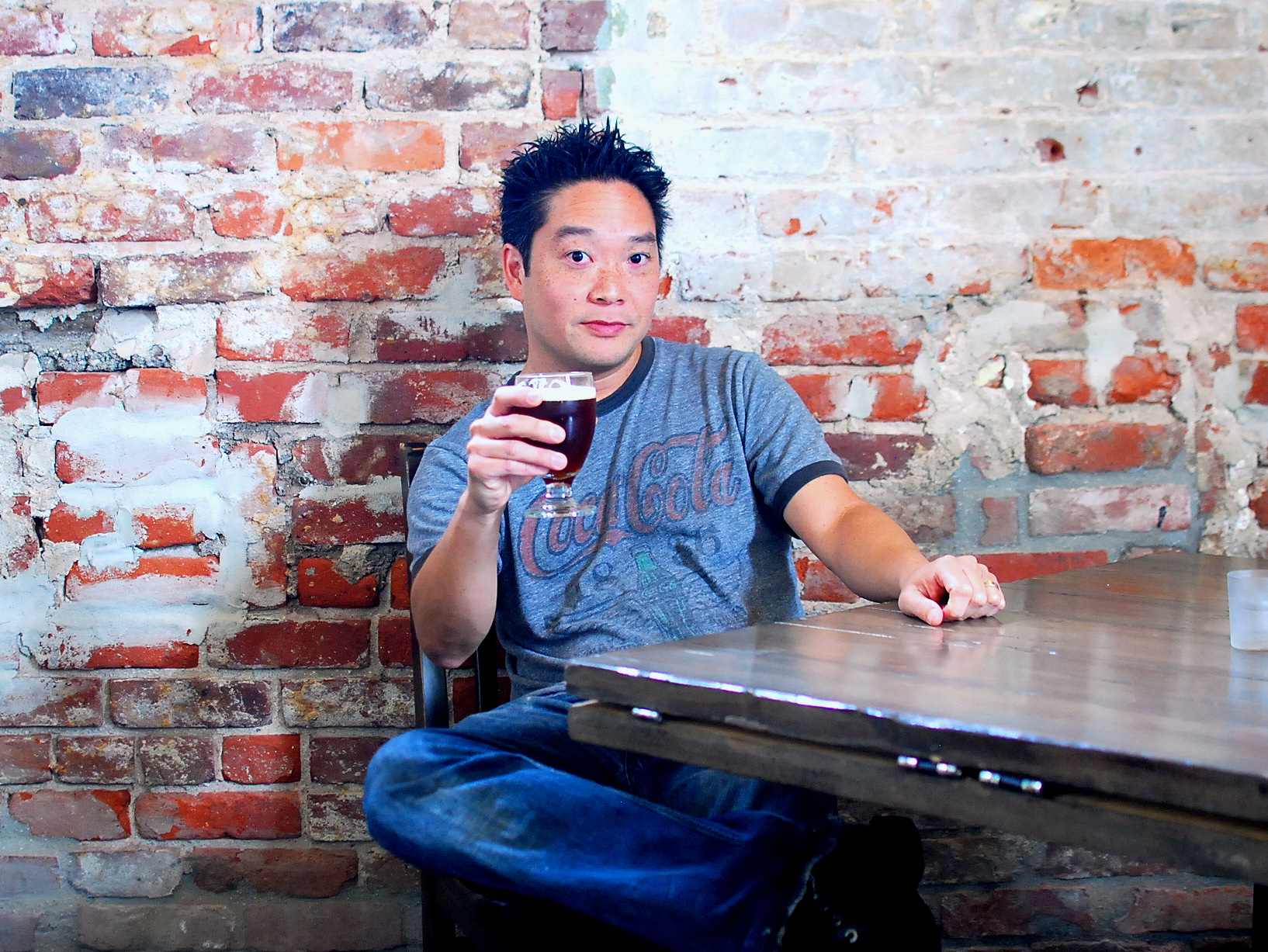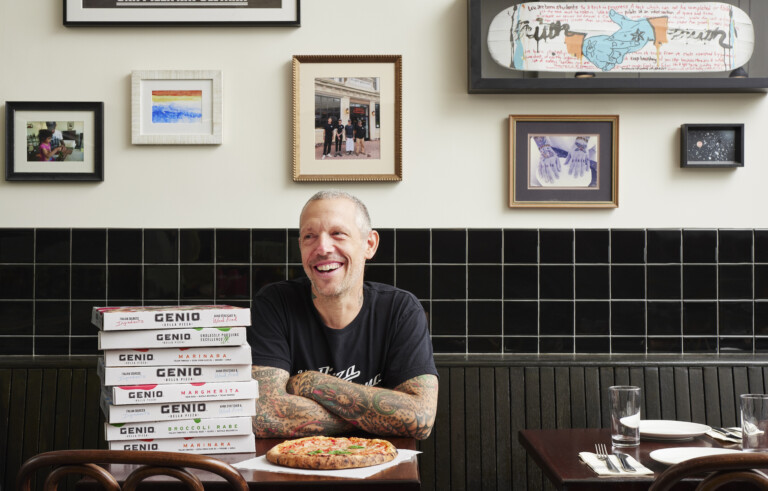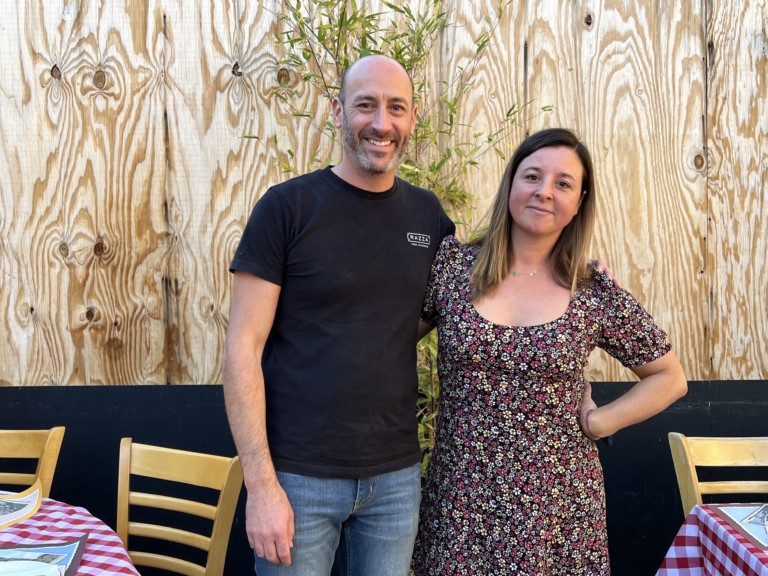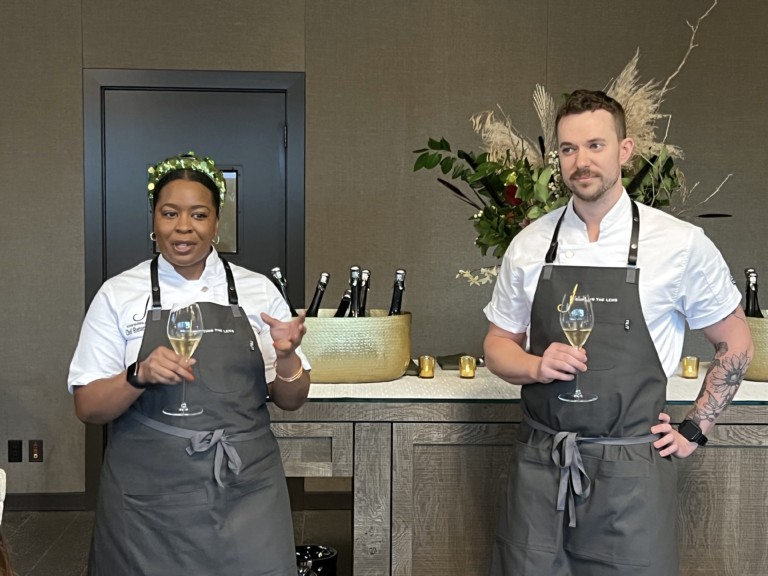Chef Bryant Ng is an L.A. native who attended UCLA and consulted for biotech and pharmaceutical companies before his interest in food overtook his life. He clocked serious time in the kitchens of restaurants like Campanile, Daniel and Pizzeria Mozza before leaving to showcase Singaporean and Vietnamese flavors with wife Kim at The Spice Table in Little Tokyo. His efforts earned acknowledgement from FOOD & WINE as a Best New Chef, and he continues to rack up national press. Ng’s also involved in the World Streetfood Congress and Chefs Club by FOOD & WINE, which just launched its third year at The St. Regis Aspen. We met at The Spice Table on May 23, and Ng explained his background and approach over a beer. Craftsman, of course.
Josh Lurie: Did you always plan to become a chef?
Bryant Ng: No.
JL: What other occupations did you consider?
BN: I’m Asian, so I was going to be a doctor. Being the good Asian son, I went to UCLA and I studied Molecular Cell and Developmental Biology. It’s a mouthful. I loved it, though. I absolutely loved it, and the intent was that I was either going to go into medicine or I would go into the business aspects of medicine. That’s actually what happened. When I graduated, I was a consultant for biotech and pharmaceutical companies, of all things. Then somewhere along on the line, I realized that’s not what I really wanted to do for the rest of my life. So that’s when I started to introspect and think about what I really love to do. I’ve always loved to cook. My parents and grandparents owned restaurants in Los Angeles, so I grew up in that environment.
JL: They did, or they do?
BN: They did. They’re both closed now. My grandparents owned a place called Bali Hai, and it was a Polynesian Cantonese restaurant in Santa Monica. I still have a postcard of their restaurant. My parents had an American Chinese restaurant called Wok Way. This was in the Valley, in Northridge. I lived out in Northridge across from CSUN over there. I still remember my brother and I peeling shrimp and washing dishes and peeling bean sprouts and that sort of thing. I love doing that, but do I really want to cook for a living? I don’t know. I’ve never really worked in a professional kitchen at that point. I love to eat, I kind of know what it’s like in a kitchen. I helped out when I was a kid. I’m more business minded, so maybe I want to be front of the house, or maybe I want to do more of the business aspects. Maybe I want to be a “restaurateur,” whatever that even means.
I decided, “Let me explore this cooking thing.” I looked at the shortest courses…I feel like I’m behind everyone. All of these kids in culinary school, they’ve been in there since they were 18 years old and I was 24 at the time. “Oh, I’m way behind everybody. I need to start working in kitchens.” If I went to school, it would almost legitimize to my Asian parents and to myself that I was doing something right. I wasn’t just leaving a lucrative job and saying, “Fuck it. I’m just going to leave and work in a kitchen. I’m going to school again. I need some sort of education.” It turns out the shortest routes is in Paris at Le Cordon Bleu. It’s a three-month program. They call it an intensive course. It wasn’t the entire thing. I thought, “Why not go out there and see what it’s like?” Back then, it didn’t cost what it costs now. It’s insane now. Back then, for three months, it maybe cost me a couple thousand dollars.
I go to Le Cordon Bleu, and what’s funny is everything just made sense. The physical world just sort of changed my confidence. Everything sort of fit, and it was really strange. Granted, it’s not a professional kitchen, but just being in that environment and going through all these recipes – there’d be a demonstration and you’d cook a practical – it’s almost like a chemistry class. This just makes sense, and everything just flows, more than anything else in life at that point. I thought to myself, “Maybe there’s something to this. Maybe I should be cooking.”
JL: What was your very first restaurant job after culinary school?
BN: I was living in San Francisco prior to going to Paris, and I kind of understood the restaurant scene a little bit better than L.A., even though I’m from here. At that point, I had more disposable income. I was eating out more, so I was more familiar with the restaurants in general. I went out there and ended up getting a job at La Folie with Roland Passot, a French kitchen. It was intense. It was crazy. It was the first time I’d been in the weeds and in the shits, ticket after ticket after ticket, and, “Oh my god, what am I going to do? I’m sinking.” What’s crazy is I loved it. I fucking loved it. “There’s something absolutely wrong with you, but I love the camaraderie with all the cooks and this sense of immediacy.” You’ve got to get it done. You prep, prep, prep, you’ve got to get it done. We open the doors and service is going to start at 5:30. Ticket after ticket after ticket. And I loved it. I loved cooking, I loved learning about cooking to increase my technique. I learned to taste better. It’s something you learn. When I first started out, I was like, “How does he know that it’s missing this, this and this?” I can’t taste that yet, or I don’t know what to look for. Eventually, after practice, you know exactly what it is, and it becomes second nature.
JL: What brought you back to L.A.?
BN: From San Francisco, I decided to come back to L.A. because of my family. It’s time. I’d been living in all those other places for quite some time and I think it’s time to come back to L.A. When I came back to L.A., that’s when I got a job at Campanile.
JL: So it was Campanile to Mozza?
BN: No. From Campanile I went to New York and worked at Daniel. In my mind, I felt if you’re serious about your cooking career, you should work in San Francisco and New York at some point in your career. At that point, I had worked in San Francisco and was back here in L.A. and thought, “I’ve just got to go balls out. I’m young enough right now. I’m not really attached to much. Why don’t I just go out there?” When I got out there, I was just staying at a friend’s place. I had arranged for trails at different restaurants. There was nothing committed yet, and I’m just like, “I’m moving out there.”…I went to different restaurants to try out and the funny thing is, the first one I went to was Daniel. At that point, I read “The Fourth Star.” It’s a great book, and it’s the inner workings of Restaurant Daniel. I remember reading it, “It’s so intense there. I’m never going to work there.” Then I got there, “Wow, it is intense, and I have to work there, and I have to get my ass kicked.” It’s one of those things where I wanted it and knew I needed it for discipline and technique and to be in an environment where everyone’s really good at what they do. A lot of the guys I worked with, they’re amazing cooks, better than me. Of course. These guys kick ass, and it was great to be in that environment and to learn, or to even watch Daniel [Boulud]. He would just hop on the line, middle of service, Saturday night, cook like the rest of the cooks. Damn, that’s a lot of respect. Nancy [Silverton], when we opened Pizzeria Mozza, every single day, she was right next to us. To this day, I look at that: one day, I hope to do that. I want to be like them because I have so much respect for them. They’re on the line, doing it, and you can see they’re so committed and passionate.
JL: Do you still feel like it’s essential to work in San Francisco and New York if you’re a chef?









Blog Comments
Interview: chef Bryant Ng (The Spice Table) | The Spice Table Restaurant | Los Angeles, CA
June 27, 2013 at 2:49 PM
[…] Link to Article […]
Bryant Ng at Spice Table Chefsclub
June 26, 2013 at 10:59 PM
[…] Great piece on one of our new Season 3 chefs, Bryant Ng from Los Angeles The Spice Table […]